Books
Book-Related Family Activities
Save
Let's talk...
About the drawings: We can browse the book and direct our child’s attention to the book’s facial expressions, and the gradation of colours from red, to orange, to yellow. We can ask our child: How angry does the book feel now? A lot or a little? How did you know that?
About feelings of anger: We can ask our child: What causes you to feel angry? What happens to your body when you get angry? What helps you to calm down?
Save
Let's communicate...
We act out various daily events with different emotional states with our child; for example: we can ask them to act as if they’re eating pizza while angry, or combing their hair while scared, or reading a book while happy, and so on. This simple activity enables the child to identify andbe aware of their different feelings, which helps them control them.
Save
Let's create...
We can build a “comfort corner” in the house with our child. We might put a toy that they like there, different drawings, a comfortable chair, a small blanket, a water bottle, and whatever our child wants from the tools that help them. And when they feel angry, we can ask them: Let’s go together to the comfort corner for you to calm down, and we’ll continue our talk there. We can maintain physical contact like patting on the hand or shoulder, and ask them from time to time: Do you still feel angry now? And we continue doing this until they calm down.
Save
Let’s talk...
About problem solving: The siblings in the story faced a problem. We can ask our child: What was the problem? Who was able to solve it? Let’s share a problem we faced with each other and how we managed to solve it.
About sense of capability and promoting responsibility: We allow our child to choose a task in the house that they are responsible for implementing, and we can encourage them to do so.
About our child’s qualities: We can print our child’s hand on a paper, and write inside each finger our child’s qualities, characteristics, and strengths, then hang it on the refrigerator to give them a feeling of confidence and pride in their abilities
Save
Let’s enrich our language...
We can examine the different drawings in the story: We can describe the drawings underground and above-ground and distinguish the similarities and differences between them. We can use terms like: wide, narrow, bright, dark, and others.
Save
Let’s create...
Puppet: We can use old socks to make a puppet in the shape of Maurice the Mole. We can attach a nose and eyes to it, and dress it with a cloth hat. We can make whatever puppets we want for different animals.
Joint drawing:
We can draw a vertical or horizontal line on a paper and complete it each time in a different way. We can take turns with our child, to get a drawing, and we can colour the spaces in it together.
Save
Let’s communicate...
We can have a meditation session and communication with nature. We can visit a nearby forest or garden and sit quietly and peacefully. We can also observe the different animals around us, smell the scents, and feel the wind blowing on our body.
Save
Let's research...
We can search for animals that build their burrows underground, like the mole and others, and gather information about their characteristics and food. We can also watch a video about them on YouTube.
Save
Let's talk about...
About problem solving: We can ask our children: What was the problem the rabbits faced? How did they feel? How did they act? And how were they able to solve it? We can read and follow the drawings and talk about what the rabbits did.
About solidarity and the ability to influence: We can talk with our child about challenges they face at school or in the family: What is the source of this challenge?What does our child feel, and how can they deal with it? We can also look for problems our neighbourhoodand town suffer from, such as the garbage problem for example,and think about our role as a family in addressing it.
Save
Let’s enrich our language...
The Diverse Library: The librarian classified the books and distributed them in different boxes according to their topics and types: encyclopaedias, puzzles, space stories and so on. We can browse our home library and try to classify its books together according to their literary genres. We can borrow various books from the public library, and expose our children to non-fiction literary genres, such as: riddles, poetry, cookbooks, arts, and others.
Save
Let's communicate...
Visiting the public library: We can visit the public library, get to know the library sections and the different types of books in it, and borrow a book we would like to read. Older siblings can read to the younger ones.
Joint activity: We can plan a joint activity with friends in theneighbourhood, such as: decorating or cleaning the street, hanging banners with beautiful phrases, and so on.
Save
Let’s create...
Treasure Hunt: We can draw a map of the house and determine a path on the map to find the treasure. We can playwith our child, and each time we draw a different path to reach the treasure.
Watercolours: The story illustrator used watercolours. We can make these colours together from materials available at home such as: beet juice for lilac colour, carrot juice for orange colour, tomato juice or ketchup for red colour. Spices, such as turmeric, provide us with another excellent source for making colours.
Save
Let’s talk...
About problem-solving: We can ask our children about the problems the animals faced, how they behaved, how the problem escalated, and how they found a solution.
About feelings and thoughts: We can trace the drawings, describing the characters’ emotions and actions in different situations. We can give “qualities” to each character.
About cooperation and confidence: With our children, we can recall some family and school challenges that everyone successfully overcame as a group, emphasizing the importance of each person’s role. We discuss with our children their roles in overcoming these challenges.
Save
Let’s explore and initiate...
We contemplate: we can search for and present problems in our neighbourhoods and towns, such as garbage issues, and brainstorm ways to address them.
Save
Let’s act...
We can act out situations where our child may face individual or group problems and discuss ways to cope with them, such as a disagreement with a friend, losing a game, a student getting injured on a school trip, or facing bullying from an individual or a group.
Save
Let’s create...
With our child, we can prepare an “I Can Jar:” Together, we can write phrases on paper scraps describing things we can do together that benefit us and others. We can identify a positive change we want to make, for example: “I can say no to bullying,” “I can help a friend in need,”
Save
Let’s talk...
About feelings: we can read the story with our children and talk about “Tala” and “Fadi’s” feelings from the beginning to the end. We can ask our children: How did they feel and how did these feelings change?
About new beginnings: we can share our feelings about new beginnings with our children, such as the first day of school or joining a new club. We can ask our children about their feelings in new beginnings: what makes them feel secure, and what helps them overcome feelings of fear or dread. We can remind them of situations where they adapted successfully.
About friendship: “Tala” was able to form a friendship with “” We can follow the text and illustrations with our children and ask them how that friendship formed, what they did together, and how friendships are made. We can also ask our children who their friends are and what they to do with them.
Save
Let’s play and work together...
We can initiate a fun and shared activity, such as recalling things we love to do together, like going on a family picnic, reading a book, or preparing a favorite dessert and more. We can try to allocate time during the week to enjoy an activity or more with our child.
Save
Let’s explore...
We can explore and learn about pets and how we can take care of them at home, and about the relationships that form between the animal and its owner.
Save
Let’s communicate...
We can invite one of our child’s friends to visit our home or participate in a shared activity, like a park trip, to strengthen social relationships and support them in building friendships.
Save
Discuss...
The title: we should ask our children what does “the invisible girl” mean? We should follow the drawings and ask the children, “What has made the people in the story invisible?”, “How did their lives change, and how did they become visible”?
Exclusion and bullying: with the children, review situations in which they, or one of their friends, were bullied. How did they feel? How did they act? We must suggest together other ways of dealing with the mentioned situation.
Deprivation: many characters felt they are deprived of many things, such as friendships, money, and the ability to walk. We must talk to our children about the things that we have, but others don’t, and about things that we don’t have but others do.
Save
Connect...
Volunteer: think of a person you know who needs help, or an institution in which we can volunteer. Make volunteering a family ritual.
Isabel relied on her parents’ experience, expertise, and close relations to regain her energy and abilities to change people around her. Prepare a box of cards and write family activities you can do together to make you feel happy and close. Choose a different card each time.
Save
Act...
Review with the children a situation in which they have been excluded. Role-play and re-enact the situation and the dialogue.
Save
Let’s talk...
About the plot: The book is mainly based on drawings. We can encourage our children to “read” the drawings and help them describe them using accurate verbs and vocabulary and make connections between sentences. We can ask them: Why do you think Nabil noticed the wounded bird by himself in the midst of a crowd of people, while no one else noticed it? what did he do?
About feelings: We can talk with our children about the bird’s feelings. We can ask them: How did the bird feel when it hit the glass? How did it feel when no one noticed it?
About sympathy and help: Nabil alone noticed the wounded bird in a crowd of people, while no one else noticed it, and he helped it. We can ask our children: How does Nabil feel about the bird? Why did he help it? How did the bird feel as well? Have they ever seen someone who needs help? How did they feel, and what did they do?
About taking care of the bird: Nabil took care of the bird with the help of his parents until it recovered. We can talk with our children and describe what Nabil has done.
Save
Let’s mimic...
With our children, we can look closely at the moment Nabil released the bird. Together, we can imagine the bird talking and telling the other birds about what Nabil did. We can take on the characters and act them out with our children.
Save
Let’s communicate...
To adopt an animal, we can contact the Animal Welfare Organization. We can explore our favourite animals and find information about them with our kids.
Save
Let’s enrich our language...
With our children, we can track the book with its sequential drawings, and we can enrich and develop the narrative ability of our child by describing the events in a sequence, such as: The father prepared a house for the bird from the cardboard box, and the mother bandaged the broken wing, and then…
Save
Let’s take initiative...
With our children, we can pick a bowl to fill with water and place it on the balcony or on the edge of the window and designate it to water the birds. We should make sure to fill it with water every day. We can also put a bowl of water and leftover food for stray animals on the edge of the road.
Save
Let’s talk...
About feelings: We can follow the children in the book and talk about the different feelings they expressed. We can talk about feelings of pride, empathy, a sense of achievement and empowerment. We can enrich our child’s vocabulary so that they can be aware of their feelings and express them better, while connecting how they behaved with how they felt.
About the child’s abilities and roles: With our child, we can recall an experience they went through in the family or at school, in which they expressed an opinion or position, by using words or by actions. How did they feel, and what did they learn from this experience?
About ways of expression: The book highlights several ways of expressing oneself through speech, actions, and creativity. We can track these methods, describe them, and discuss the ways our children express themselves, while giving examples from their daily life. We can also discuss the importance of making our voice heard and expressing ourselves by speaking up.
Save
Let’s search and be initiative...
With our child, we can search on the Internet for children who made their voice and opinion heard on an issue that concerns them, such as the Swedish girl Greta Thunberg, who led a protest around the world in defence of the environment.
We can search and talk about things that need improvement in the country or neighbourhood in which we live. We can choose one cause, and we can volunteer with our children or family to improve it.
Save
We can look...
We can look for organizations and institutions that provide different services, then we can contact them, get to know their work, and volunteer for them.
Save
We can read...
We can read together the phrases on pages 2 and 3 and invite our child to write phrases in the empty bubbles at the end of the text to express methods that they think are important to make the world a better place.
Save
Let’s have a conversation...
-About ways of expressing love: The girl expressed her love for her mother by surprising her and making biscuits for her. We can talk with our child about ways to express love, and we ask them: How can we express our love for the other? We can suggest several ways, such as expressing love with words or cards, or with body language such as hugs and giving kisses, or with actions such as helping and preparing surprises, as the girl did.
-About sympathy: the child was very sensitive to her mother and sympathized with her, so she did not want to wake her from her sleep. We can talk to our child and ask them how the mother feels about this behavior, and we can also ask them: How is it possible for the mother to be sensitive and sympathetic to the child? And how can a child be so towards the parents? We can give examples from our lives.
-About initiative: the girl took the initiative to prepare biscuits for her mother. The mother appreciated her child’s attempt and praised her. We can talk about the initiatives that our child has taken for the other (for example: for members of their family), or the initiatives that they can generally take for the other. We can also deal with their feelings and the feelings of the other. We should praise and encourage them.
-About flexibility and dealing with problems: Although the child made playdough instead of biscuits, the mother did not get angry or complain, on the contrary; She encouraged her and explained her she made playdough. We can talk with our child about experiences that did not go as we wanted or expected. How did they feel? How did they act? How did the parents act? How did we react?
-About surprises: Children love surprises and enjoy receiving and preparing surprises for their parents. You may want to decide with your child to prepare mutual surprises; Like making them a favorite dessert or inviting someone they love to your house.
Save
Let’s share...
-We can prepare a cookie with our child, or a plate of salad. We can share the process of preparation together. We can also name the objects and the verbs. we taste; touch, have fun together.
Save
We might start...
We might start by having a conversation with our child about what he/she likes to do alone, and what he/she likes to do with his friends.
Save
We can have...
We can have a conversation regarding our child’s friends: Who are they? What does our child like to do with every one of them? We can share with our child what we like about our own friends, and what we like about them.
Save
We can think...
We can think together why the alligator chose the giraffe to be his friend. Among our friends, do we have “giraffes” who are totally different from us? Why do we love them?
Save
If you were...
If you were the alligator, what would you do to get the giraffe’s attention?
Save
We can look...
We can look at the last drawing in the book, and imagine the conversation between the alligator and the giraffe.
Save
The alligator...
The alligator – the giraffe, they are a funny couple. We can think of other funny couples about which there are stories, such as the elephant and the ant. What is their story?
Save
We can prepare...
We can prepare pictures of our friends and make a “friends album”. We can cut up pictures or photos of them, put them in a book and write down what things we like to do with them. You can prepare an album for every friend as a birthday present.
 The Angry Book
The Angry Book 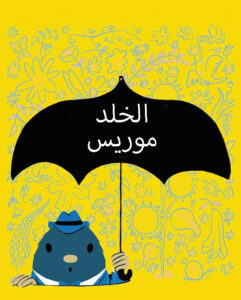 Maurice the Mole
Maurice the Mole 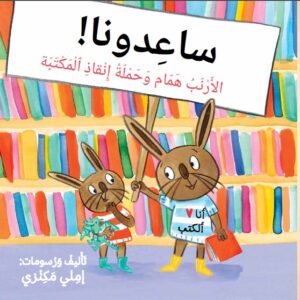 Help Us
Help Us 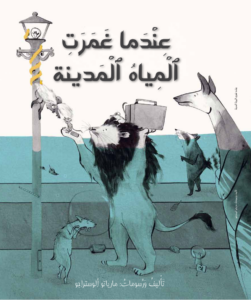 When Water Flooded the City
When Water Flooded the City 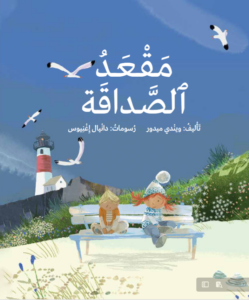 Friendship Bench
Friendship Bench 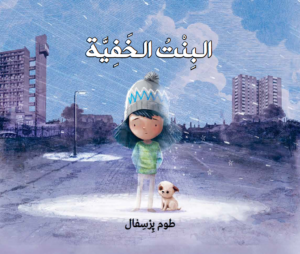 The Invisible
The Invisible 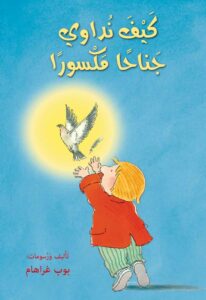 How to heal a broken wing
How to heal a broken wing 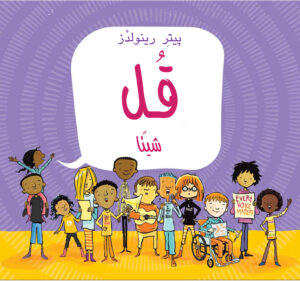 Say something
Say something 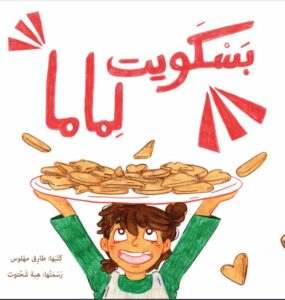 A Biscuit for Mama
A Biscuit for Mama 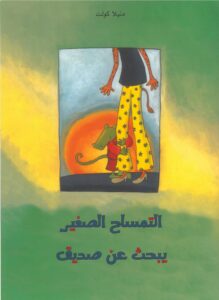 The Alligator Looks For a New Friend
The Alligator Looks For a New Friend 
